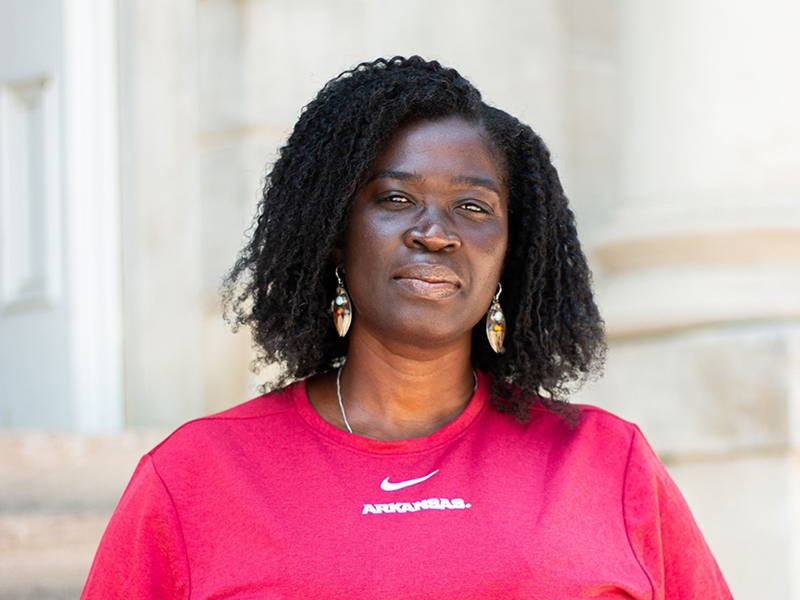Selom Ametepe, an international doctoral candidate in the Graduate School and International Education's Cell and Molecular Biology Program, recently received the DeLill Nasser Travel Award for Professional Development in Genetics from the Genetics Society of America, a prestigious national recognition supporting early career scientists in their professional development.
The DeLill Nasser Travel Award is given to graduate students and postdoctoral trainees to support costs to attend national and international meetings and enroll in laboratory courses. The award is named for long-time GSA member and National Science Foundation program director in eukaryotic genetics, DeLill Nasser, who was considered the "patron saint" of genetics.
The award will support Ametepe, a Togo native, in her research by funding laboratory courses and travel to conferences.
"I am honored to receive this award," Ametepe said. "These funds will allow me to attend the next Genetic Society of America conference and get exposed to the cutting-edge techniques that scientists are using in the field of genetics all over the world."
Ametepe first came to the U of A in 2018 to earn a master's degree in cell and molecular biology through a Fulbright Scholarship in professor Mary Savin's lab. Following her graduation, she had plans to return to Togo — until she was approached by Doug Rhoads, director of the Cell and Molecular Biology Program, about pursuing a doctoral degree.
Ametepe enrolled in the doctoral program, where she has conducted research focusing on the nervous system in fruit flies in hopes of transferring knowledge to the human nervous system. She is interested in the mechanisms that guide neurons extensions, axons to form connections with other neural or non-neural cells. She focuses specifically on the gene Roundabout3, which is critical to the development of the nervous system. Using a sophisticated genetic engineering technique called CRISPR gene editing, Ametepe is cutting portions of the gene to discover what parts are crucial for the function of the protein.
She had many people to thank for helping her earn the award.
"I would like to thank my dad, Christian, who is a lab technician and brought me to the lab on Saturdays as young as I can recall," she said. "I would also like to thank my adviser, Timothy Evans; the Biological Sciences Department; and the Faculty for the Future Fellowship I earned as a doctoral student. I also want to thank my dissertation committee members: professors Jeffry Lewis, Adam Pare and Chris Nelson. I am also grateful for the Harris and Lacey families, especially Tina, for their love and support during my time in the States."
For more information about the Genetics Society of America, visit their website.
Topics
Contacts
John Post, director of communications
Graduate School and International Education
479-575-4853,
